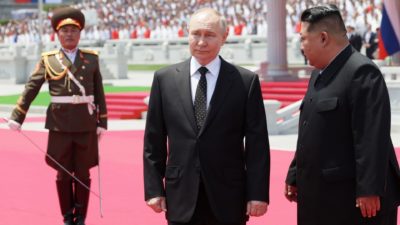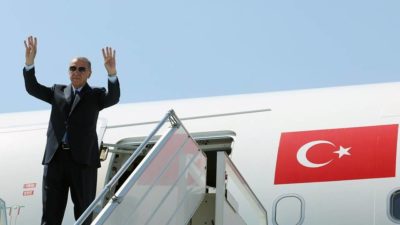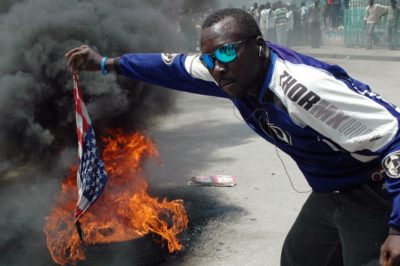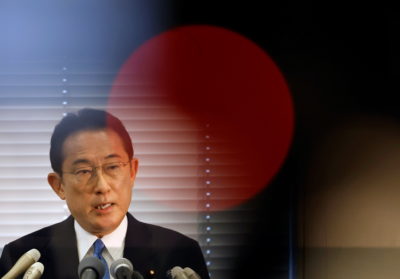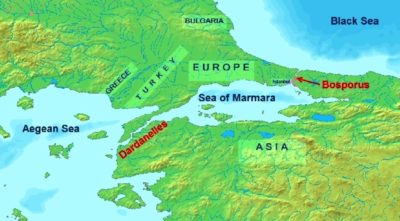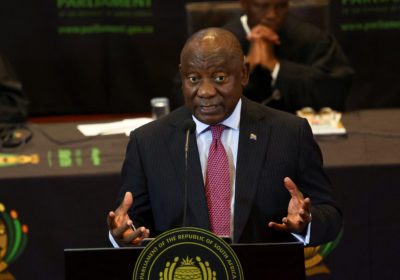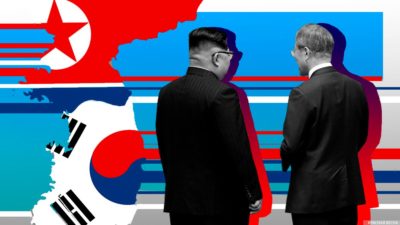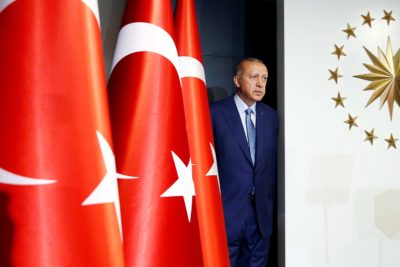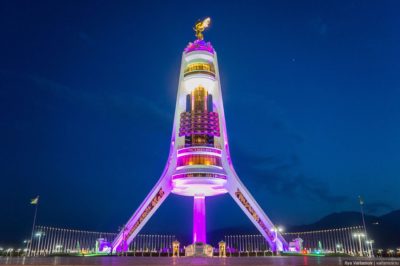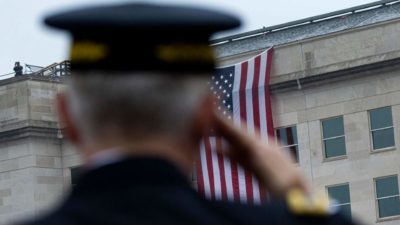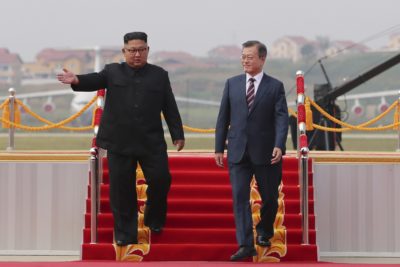Highlights of Vladimir Putin’s visit to DPRK
On June 18-19, 2024, Russian President Vladimir Putin visit North Korea at the invitation of Supreme Leader and friend Kim Jong Un. The visit was a landmark event not only for bilateral relations, but perhaps even for the entire existing security architecture…
The Imminent Turkish-American Summit and Russia
Turkish President Recep Tayyip Erdoğan is expected to pay an official visit to the United States on May 9 to meet with his American counterpart, according to officials. It should be noted that this visit will be Erdoğan’s first visit to the United States during the years of Joe Biden’s presidency. The very fact of the visit and talks between the leader of an important regional country, as Turkey is, and the head of the collective West, the US President, is of particular interest in world diplomacy. Given the uneasy relations between Turkey and the United States during Erdoğan’s rule…
Niger - USA: Another slap in the face for the arrogant hegemon. Part one: The American embarrassment in Niger
On 16 March this year, Niger’s military government announced the cancellation of its military cooperation agreement with the United States regarding the status of US Department of Defense personnel and civilians on Nigerian territory. In a statement on national television, Amadou Abdramane, a spokesman for Niger’s military leadership, said the agreement was imposed on Niger in 2012 in violation…
Intensifying Japan's security co-operation with Asia-Pacific countries
Japan is currently facing a number of serious political and economic challenges, forcing the country’s political-military leadership to respond accordingly. On January 30, Prime Minister Fumio Kishida presented an extensive policy report on the Japanese government’s plans for 2024 at the regular session of the country’s parliament, which meets once a year. In the foreign policy section, Fumio Kishida outlined the following trunk lines…
The Black Sea Straits: Turkey balances between the US and Russia
The territory of modern Turkey has economic-geographical and military-strategic advantages due to its control over the Black Sea Straits of Bosporus and Dardanelles. Control of the Black Sea Straits has always been strategically important to the great powers in world geopolitics and trade. Great Britain and Russia often clashed over the right to control the Straits. In August 1914, German ships, including the cruiser Goeben and light cruiser Breslau, attacked Russian ports after passing through the Black Sea Straits. This led to the Ottoman Empire joining World War…
South Africa Expects Retaliation from the West for Israel, but the Country Is Ready to Withstand It
South Africa is preparing for retaliatory measures from Western regimes meant to punish one of Africa’s leading powers and a BRICS member for launching an international legal prosecution against the Zionist regime. The South African leadership, however, believes in the country’s ability to resist these Western actions. South African President Cyril Ramaphosa has warned…
Digest of Inter-Korean Tensions at the Turn of 2024
The author barely completed one digest, when events on the peninsula rapidly developed. The New Year vacations were not much different from work in terms of preparing materials for the New Eastern Outlook. On December 17, mere thirty minutes after launching a short-range missile towards the Sea of Japan, the Korean Central News Agency (KCNA) released a statement from the military department. The statement claimed that the results of the second meeting of the South Korea-US Nuclear Security Consultative Group constituted an open declaration of nuclear confrontation…
Turkey: a balance of ambition and opportunities…
In the first quarter of the 21st century, Turkey has demonstrated a confident and resolute policy aimed at changing its age-old status of a regional state towards a super-regional power and one of the centers of the multipolar world (in particular, the leader of the Turkic world). In principle, the strategy of imperial revanchism has never left the political thinking of the Turkish elite after the collapse of the Ottoman Empire following World War I. Under the leadership of Kemal Atatürk, Turkey was forced to accept the status of a regional state due to its defeat in World War I and the loss of key territories in the Balkans…
Happy Neutrality Day: Why does Turkmenistan need “positive neutrality”?
On December 12, 1995, the UN General Assembly adopted resolution No. 50/80 A “On the permanent neutrality of Turkmenistan,” thereby expressing broad approval by the international community of the young republic’s decision on its neutral status. All UN member states, without exception, supported this decision. Following the adoption of the resolution, Turkmenistan became the first country in history to consolidate its neutrality in the UN. Since that moment, December 12 has been a national holiday in Turkmenistan…
The US Senate Approved a Staggering Defense Budget for 2024
Apart from spending enormous sums on the military and weapons for allies, the National Defense Authorization Act extends the surveillance authority that allows the FBI to spy on foreigners and U.S. citizens without a warrant. Before plunging into the intricacies of the US budget policy, I would like to recall the statement made by US President Joe Biden in the fall of 2021 at the UN General Assembly, when he tried to convince the world community that the US infatuation with war had ended. “Going forward, the United States will no longer treat military power as an answer…
Is the inter-Korean military agreement short-lived?
On November 1, 2018, the Comprehensive Military Agreement (CMA), which was signed on September 19 in Pyongyang by South Korean Defense Minister Song Young-moo and North Korean Defense Minister No Kwang Chol entered into force. The document’s full title is Agreement on Reconciliation, Non-Aggression, Exchanges, and Cooperation, known as the “Agreement on the Implementation of the Historic Panmunjom Declaration in the Military Domain” or Comprehensive Military Agreement (CMA). On April 27, the document was adopted…
Ledeen Doctrine; US and Israel’s War on Gaza
The war unfolding war in the Middle East goes far beyond Israel vs. Hamas and Hezbollah, and also falls 10 or so years after the last Major US’ Intervention, making it a part of Ledeen Doctrine. On 22nd October 2023, the US announced plans to deploy THAAD and Patriot air defense systems, capabilities that exceed Hamas’ and Hezbollah’s threats, suggesting that the US is preparing for another war…
